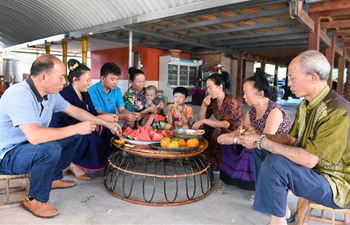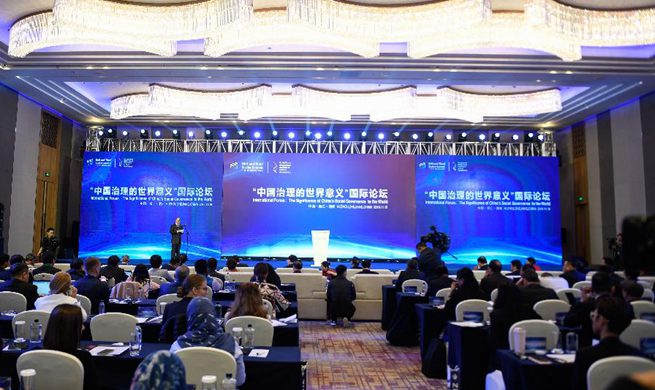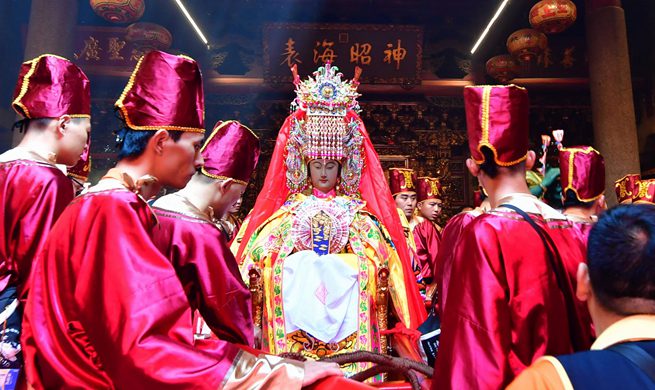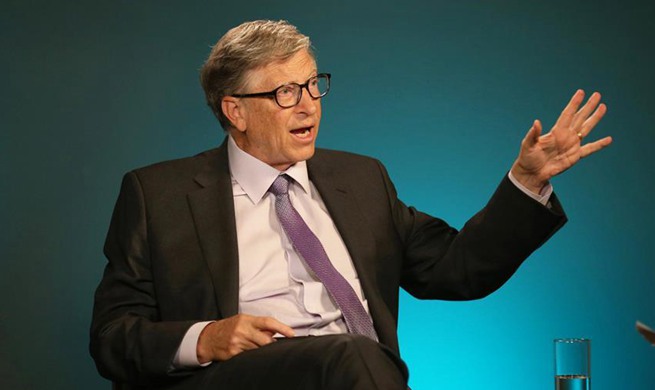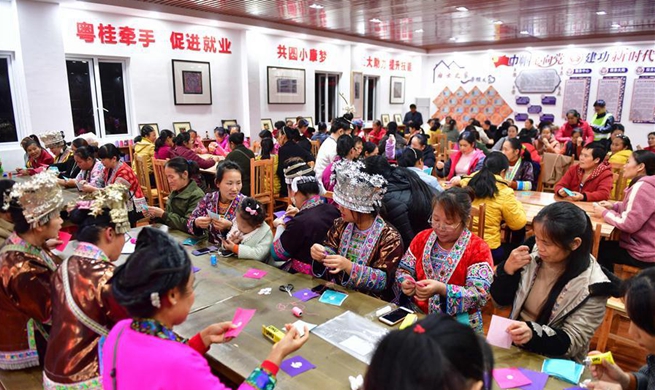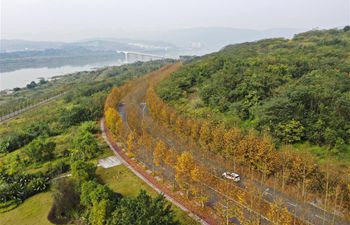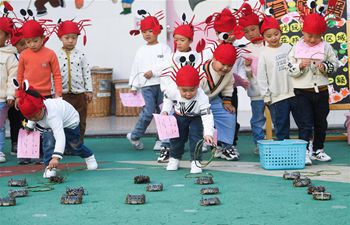TOKYO, Nov. 19 (Xinhua) -- Japanese Prime Minster Shinzo Abe on Tuesday became the joint longest-serving prime minister along with Taro Katsura, having served at the helm for 2,886 days amid a number of setbacks including scandal-driven public mistrust, constitutional controversies and diplomatic impasses.
On Wednesday, Abe is set to become Japan's longest-serving prime minister, marking a new record in Japan's political history, having held the top post for almost seven years after he won the premiership in 2012, having also held the position briefly between 2006 and 2007.
Abe's current term as prime minister and leader of the ruling Liberal Democratic Party (LDP), however, is set to end in September 2021.
"We have been tackling each challenge squarely, and seven years have passed fast in a way. That is my honest feeling," Japan's top government spokesperson and Abe's right-hand man, told a press briefing on the matter.
Chief Cabinet Secretary Yoshihide Suga said that since 2012, the Abe administration has been committed to revitalizing the economy and reworking its foreign and defense policies.
At a separate briefing, Japanese Defense Minister Taro Kono said that the stability of the Abe administration has been a boon for the nation's diplomatic and security efforts.
Abe, 65, however, along with his administration has been no stranger to controversy.
In 2014, he mandated the reinterpretation of Japan's pacifist constitution to expand the role of the nation's Self-Defense Forces (SDF) in a move widely criticized by the public and opposition camp for using his parliamentary majority to steamroll unpopular legislation on the issue through both houses of Japan's bicameral parliament.
His legacy-led goal of amending the constitution for the first time since WWII, however, has not been a smooth one, having failed to garner the requisite number of seats in an upper house election this year amid a lack of public support and disapproval from the opposition camp.
Abe has, thus far, along with such controversies, weathered the storm of a number of money and favoritism scandals that have plagued him and his cabinet since his first tenure.
Most recently, the Japanese leader has had to contend with two of his ministers stepping down in quick succession owing to potential breaches of Japan's election law, as well as face allegations personally that his office partly covered expenses for his supporters to attend a dinner party at an exclusive Tokyo hotel on the eve of the government's annual cherry-blossom viewing event.
The prime minister has also seen little progress in breathing life into a sputtering economy, the world's third largest, since he unveiled his "Abenomics" policy mix comprising "three arrows" of monetary easing, fiscal stimulus and structural reforms.
With the economy barely expanding in the July-September quarter and the effects of a recent consumption tax hike from 8 percent to 10 percent yet to fully take effect, a number of key economic indicators recently have pointed to the fact that the economy, under Abe, could in fact be in a recessionary phase.
In terms of diplomacy, a long-running territorial dispute with Russia over four islands off Hokkaido, that have prevented both sides from signing a post-war peace treaty, remains ongoing, despite Abe claiming he intended to resolve the dispute and ink a peace treaty.
Japan has also seen ties with South Korea sink to their lowest of late due to a wartime labor dispute spilling over into a bitter tit-for-tat trade dispute, with little progress being made in high-level talks of late.
On Aug. 24, 2020, provided he stays in power, Abe will have served the longest uninterrupted period as the nation's leader since former Prime Minister Eisaku Sato, who served as the nation leader for 2,798 consecutive days.



